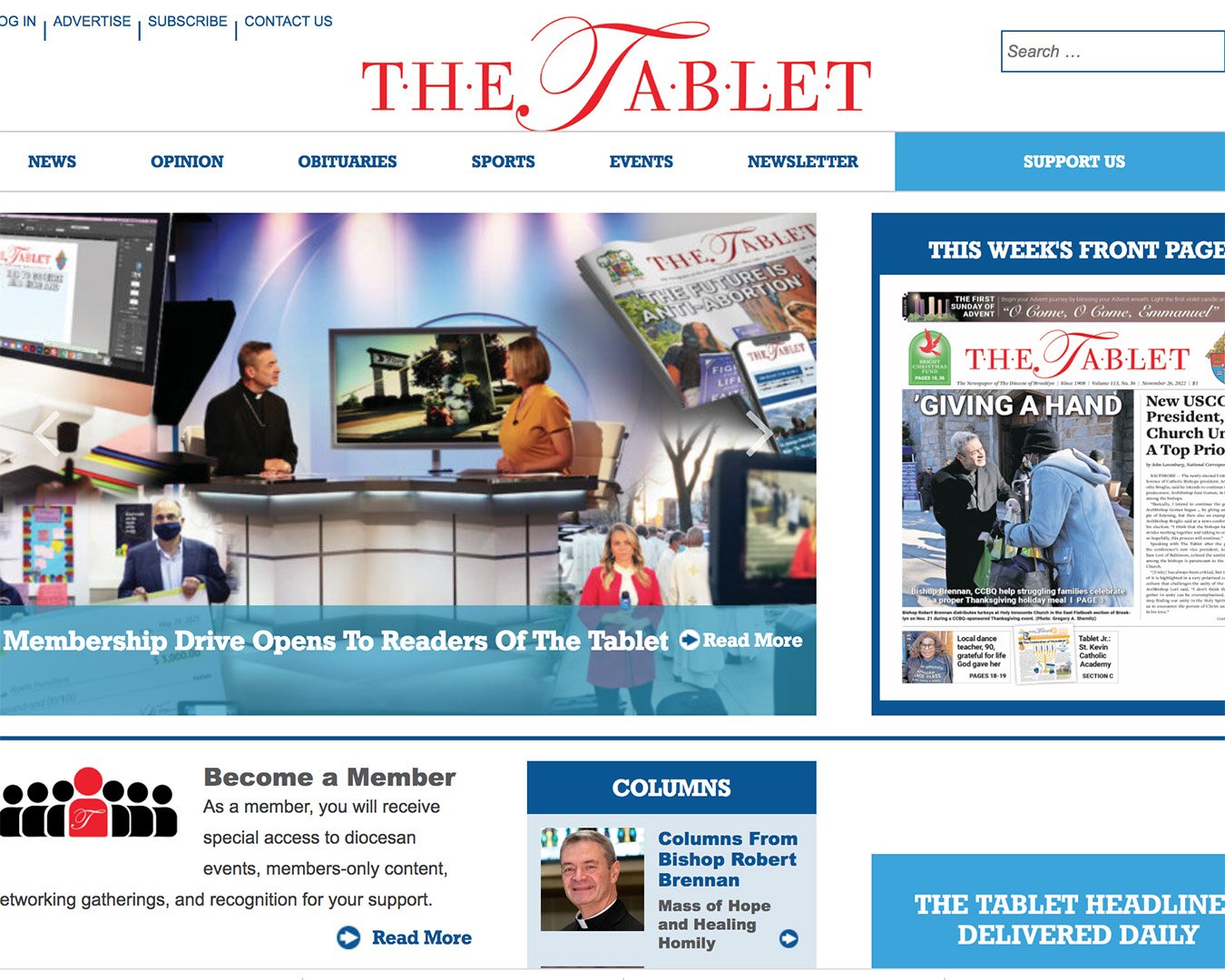Loss of print media – posing challenges to Church communications
Catholic media, like their secular counterpart, is facing a day of reckoning caused by the rapid switch from print to digital media, as well as financial challenges brought on by the COVID-19 pandemic and other factors.
Dec 09, 2022

By Christina Lee Knauss
Catholic media, like their secular counterpart, is facing a day of reckoning caused by the rapid switch from print to digital media, as well as financial challenges brought on by the COVID-19 pandemic and other factors. In both sectors, the work of professional journalists with years of experience is often being cast aside in favour of rapid-fire content created for digital consumption, often heavy on opinion without the backing of serious fact-based news.
“The state of Catholic journalism right now has to be put into context with the state of journalism in general — it’s fragile,” said Helen Osman, a veteran Catholic journalist whom Pope Francis appointed in September as a consultor to the Vatican for the Dicastery for Communication.
Osman, who is president of Signis, the World Catholic Association for Communication, is a former diocesan editor and former communications secretary for the US Conference of Catholic Bishops. She is currently a communications consultant for the Texas Conference of Catholic Bishops in Austin.
“There are solid, reputable journalists and journalism agencies both in the secular and Catholic worlds, but right now, both are struggling with the idea that somehow, just because you see it on a screen, that’s news or journalism,” she said. “We know that is not the case.”
Change has burned through the Catholic media landscape in a fierce way, especially since the onset of the pandemic, when revenues at many dioceses dried up as Catholics stopped attending Mass.
The loss of traditional print media and layoffs of Catholic journalists present a variety of concerning communication problems for the Church, according to Catholic media veterans.
One of the biggest fears is that the loss of professional journalists covering Catholic issues puts the Church in peril of news being reported from a skewed or incorrect perspective. Some journalists, like Osman, fear the reporting of real news is being lost as some bishops and other publishers favour turning to more tightly regulated content that skews to one particular viewpoint. Others are wary of how much can be accomplished simply through digital means.
“Social media is not journalism,” said Vito Formica, executive director of news content and development for DeSales Media, the Brooklyn-based Catholic news agency whose products include The Tablet.
It does not offer fact-checking in most cases, as well as the perspectives that reporters can bring to coverage. A two-line social media post is not going to do the work of a professional journalist. A newspaper also not only reports the news as it’s happening, but it compiles history and a forum for ideas.”
Ed Langlois, former editor of the Catholic Sentinel, which closed down this year, said many Catholic papers not only helped readers learn more about their faith, but also made them feel connected to the Church as a whole.
“Judging from hundreds of letters from mourning readers, I decided our newspaper had been the connective tissue of the archdiocese,” Langlois said. “It allowed parishes to borrow ideas and feel inspired. It helped Catholics in remote towns feel like part of the diocesan Catholic family. We still had letters to the editor, so we gave regular folks a voice. Without all that linkage, I fear the evangelising frame of the Church could fall apart.”
National Catholic media and diocesan newspapers run by trained journalists also performed the crucial work of presenting news from an authentic Catholic perspective, said Sam Lucero, retired news and information manager for The Compass, newspaper of the Diocese of Green Bay, Wisconsin.
“Content in a diocesan paper is important because you know you can trust the information you’re getting, whether it’s from a national source or from the bishop, a pastor, the vicar general or a diocesan staff member,” Lucero said.
“Without the Catholic media,” he added, “there’s the chance of a lot of fake content being spread online, misinformation spread in the name of the Church. Catholic publications are important to help prevent that.”
Changing readership habits are certainly a factor. Yet the evidence is not conclusive that Catholics are rushing to new religious media when turning from old media.
“Catholic media, like media in general, is in a constant state of change right now, and we’re looking for ways to better reach audiences and communities, using all the changing ways that people are gaining knowledge and consuming news,” said Rob DeFrancesco, executive director of the Catholic Media Association.
“Catholic journalism is vital to the future of our Church because it’s the central way we evangelise our communities and the most effective way we share the Good News of Jesus Christ,” he said. “If we won’t speak for the Church, then who will?” --CNS
(This is an abridged version of the original article).







Total Comments:1